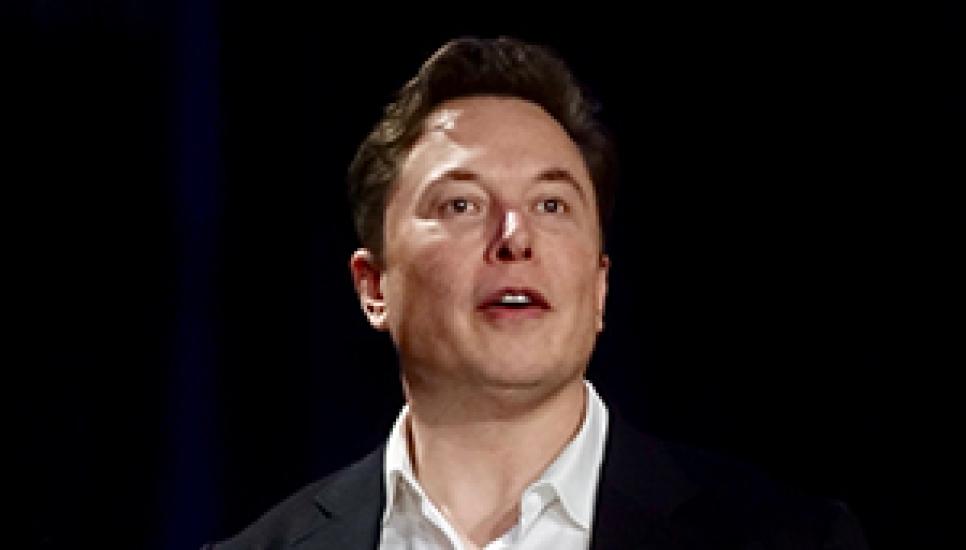FB Roundup: Elon Musk, Henry Sy family, The Rockefeller Foundation

Elon Musk obtains 9.2% Twitter stake for $2.89 billion
Shares in social media titan Twitter have swollen by 25% after the world’s richest person Elon Musk [pictured left] bought a 9.2% stake for $2.89 billion.
The Tesla and SpaceX founder snapped up 73,486,938 Twitter shares in a move that has surprised many, particularly as Musk has been critical of the channel’s free-speech policies.
The purchase makes him the company’s single largest shareholder with a stake more than four times the 2.25% holding of Twitter co-founder Jack Dorsey.
Despite giving “Serious thought” to launching an alternative social media platform, Musk, who has an estimated net worth of $273 billion, is a frequent Twitter user and has more than 80 million followers.
“We would expect this passive stake as just the start of broader conversations with the Twitter board/management that could ultimately lead to an active stake and a potential more aggressive ownership role of Twitter,” said Dan Ives, an analyst at Wedbush Securities, to The Guardian.
Musk, who has repeatedly been in trouble for problematic Twitter posts, is currently involved in a legal battle with the US Securities and Exchange Commission (SEC) to be released from a 2018 agreement with US regulators that requires him to have his tweets pre-approved by a lawyer to avoid breaking rules around the disclosure of sensitive information.
Musk and his team are yet to comment on the purchase of his Twitter shares and plans for the company’s future.
 Henry Sy’s family buy out Philippine Geothermal Production Co for $304 million
Henry Sy’s family buy out Philippine Geothermal Production Co for $304 million
SM Investments Corp (SMIC), the family-controlled company of the late Filipino tycoon Henry Sy [pictured right], have brought full control of the Philippine Geothermal Production Co. in a $304 million deal.
The renewable energy provider produces 300 megawatts of electricity from geothermal steam fields in Bicol province, about 480 kilometres south of the Philippine capital of Manila.
“As a leading sustainability advocate, SMIC is pleased to invest directly in clean renewable energy-related production, which is a national priority and aligned with our commitments to environmental stewardship and to tackling climate change,” said SMIC president and chief executive officer, Frederic C. DyBuncio.
The share acquisition will generate significant carbon offsets for SMIC and its subsidiary SM Prime Holdings, the Philippines’ largest developer of shopping malls, homes, hotels, and event centres. As part of the deal, SMIC will issue 17.4 million shares to the previous controlling shareholder, Allfirst Equity Holdings, in exchange for an 81% stake in the company.
 The Rockefeller Foundation makes $105 million climate-friendly food pledge
The Rockefeller Foundation makes $105 million climate-friendly food pledge
The Rockefeller Foundation has pledged to invest $105 million to increase access to healthy and sustainable food for 40 million underserved people around the globe.
The philanthropic organisation, which was launched in 1913 with the aim of “Promoting the wellbeing of humanity throughout the world”, has made its largest-ever investment in nutrition with the launch of the Good Food Strategy, which supports a shift in public and private spending toward foods that are “nutritious, regenerate the environment and create equitable economic opportunity for people at every step of the food supply chain”.
“Because of climate change, food prices were already the highest in a decade,” said Rajiv Shah [pictured left], president of The Rockefeller Foundation. “Now the world is on the precipice of a global humanitarian crisis.
“The world must act - and act now. With this new commitment, the largest for nutrition in our history, The Rockefeller Foundation will help increase the supply of good, nourishing food and reimagine our food systems to make them more resilient for the future.”
The new strategy builds on the foundation’s investment in powering the food system with renewable energy, part of its $1 billion commitment to an inclusive, green recovery from the Covid-19 pandemic and as a partner of the Global Energy Alliance for People and Planet.
As part of the Good Food Strategy, the foundation plans to encourage doctors to prescribe fruits and vegetables instead of drugs when appropriate; pay for healthy foods at schools, hospitals and prisons; help farmers switch to carbon-reduced production practices; and fund more small and medium-size food businesses to diversify to prevent supply chain issues.






